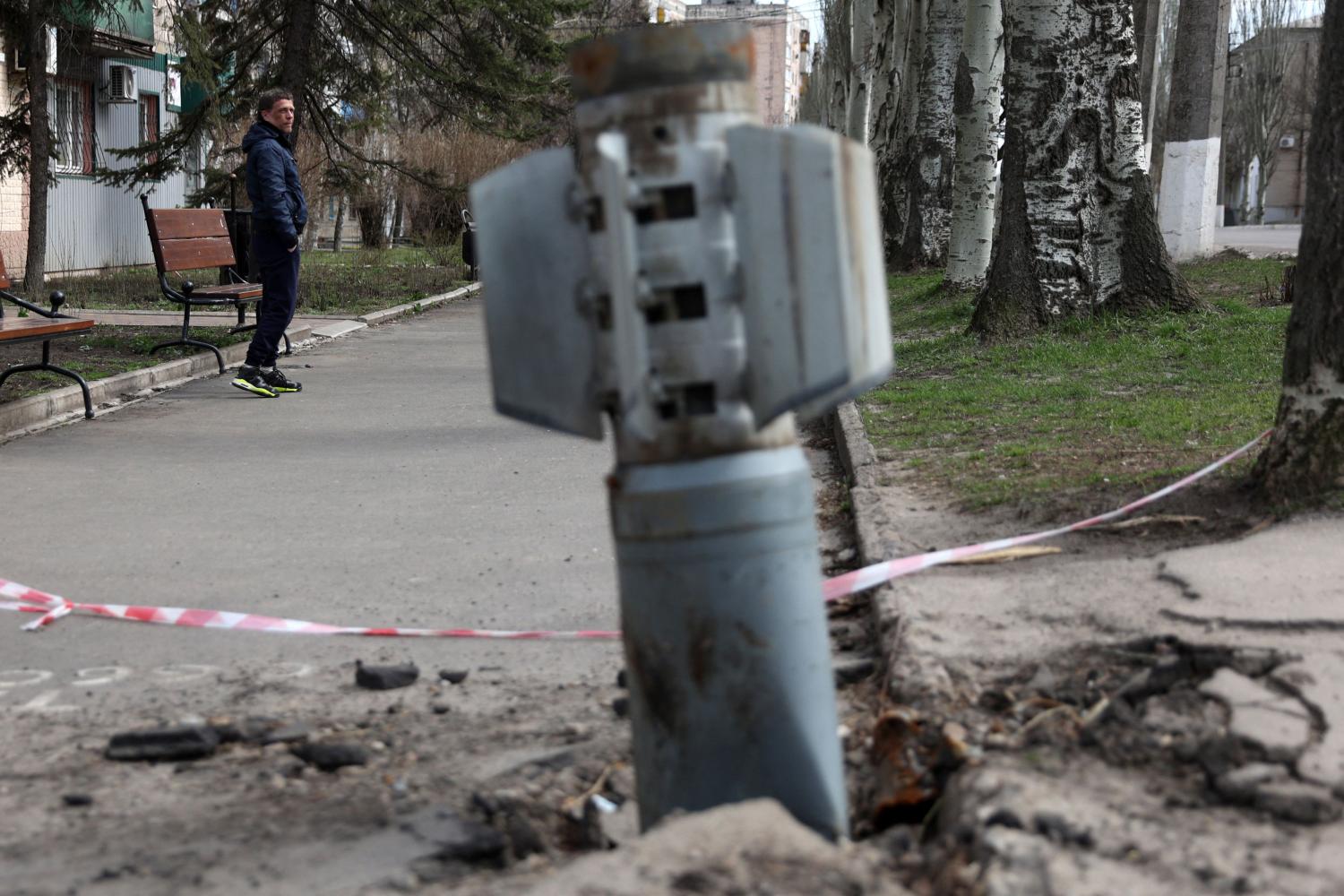Concerns over potential breaches of international humanitarian law in cluster munitions use in Ukraine are based on a misguided interpretation of the legal position. More so, the argument against supporting Ukraine with the provision of cluster bombs shows a fundamentally flawed assumption of moral equivalence between Ukraine and Russia, and how each country uses these munitions.
Ample evidence exists of Russia’s deployment of cluster munitions against residential areas in a bid to cause maximum civilian casualties and collateral damage in its campaign against Ukraine – and in repeated instances beforehand.
Ukraine, fighting on its own territory, has pledged to use these weapons judiciously and strictly in accordance with international humanitarian law.
The controversy
The abuse of cluster munitions by Russia has played a substantial role in the high civilian casualties and the extensive destruction of civilian infrastructure, including residences, healthcare facilities, and educational establishments in Ukraine. This has largely not been the subject of international condemnation, coming as it does in the context of indiscriminate missile attacks by Russia against Ukrainian populated areas and mass atrocities at closer quarters.
Yet agreement by the United States to make up a shortfall in Ukrainian artillery munitions with dual-purpose improved conventional munition (DPICM) has met with widespread criticism, with concerns suddenly raised about the potential long-term harm to civilians as well as immediate casualties. Both UK Prime Minister Rishi Sunak and Canadian Prime Minister Justin Trudeau have voiced official disapprobation – as they are obliged to do as signatories of the 2008 Convention on Cluster Munitions, which Russia, Ukraine and the United States are not.
These concerns are indeed valid. Nevertheless, it is essential to recognise that Russia has not only violated international humanitarian law but also the principles of just war. With Russia persisting in these actions, Ukraine is no longer bound by its strictures in response.

While the broader ramifications and long-term impact should be considered, the present use of cluster munitions in Ukraine is undeniably having a significant effect. This makes it imperative to re-evaluate the concerns surrounding the provision of these weapons, a concern that is unfounded in Ukraine’s case. Moreover, this debate should not overshadow the military efficacy of these weapons in the current conflict.
Issue 1: Principle of proportionality and principle of distinction
Cluster munitions are inherently indiscriminate. They disperse over a wide area and cannot distinguish between military targets and civilians. There is a valid debate about the potential for their abuse to violate international humanitarian law. However, greater emphasis should be focused on how these weapons are employed, the selection of targets, and the adherence to legal principles during military operations, as these factors play a critical role in determining whether violations may occur. With this in mind, remember that only one party in this conflict has demonstrated a clear violation of the principle of distinction, and that is Russia.
Issue 2: 2008 Convention on Cluster Munitions
The Convention on Cluster Munitions strictly prohibits these weapons for more than 100 signatory nations, primarily due to their indiscriminate impacts and enduring hazards in post-conflict scenarios. The controversial decision by the United States to equip Ukraine with cluster munitions for its counter-offensive against Russia has faced intense scrutiny, largely stemming from the misconception that such weapons are universally illegal. But the prohibition applies only to the signatories to the convention. Convention membership is on a voluntary basis, and neither Russia, Ukraine, nor the United States has ratified it, so they are not bound by the prohibition.
Issue 3: Concerns around “dud rates” and its lasting repercussions
The argument against Ukraine deploying cluster munitions centres around cherry-picked concerns about superfluous civilian casualties and enduring post-war challenges. Russian-manufactured cluster munitions do indeed have a high failure rate. Ukraine, however, pledges to deploy cluster munitions in areas with minimal civilian risk and commits to exhaustive post-conflict clean-up, particularly considering these munitions are likely to fall within its territory. More importantly, Ukraine will be supplied with munitions with a dud rate below 2.35 per cent, a dramatic reduction compared to Russia’s reported rate of 40 per cent.
Issue 4: Negative symbolic implications
The use or supply of cluster munitions has been used to suggest to the global community Ukrainian disregard for international humanitarian law or indifference to the potential civilian harm caused by these weapons. However, the longer the conflict persists, the more likely it is for Ukraine’s chances of success to dwindle, and with it civilian harm. Russia continues to orchestrate humanitarian crises, thereby pressuring Ukraine’s President Volodymyr Zelenskyy to concede in order to cease hostilities. The rules of war and the principle of proportionality should be upheld.
Do what’s necessary given the stakes involved
Ukraine lacks key enablers in the battle space such as air superiority, making cluster munitions a critical tool for penetrating Russian defence lines. The use of cluster munitions demands cautious consideration and adherence to international humanitarian principles, but the decision is necessary given the stakes involved.
Ukraine has demonstrated a comprehensive understanding, planning, and commitment to mitigate harm, and granting Ukraine access to cluster bombs could decisively tip the war in its favour, and a definitive military defeat of Russia is pivotal.

